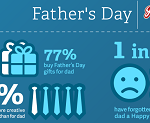 Those of you following the SavingsAngel social media sites recently saw me talking about a major change for some couponers in Florida. RedPlum, one of two major coupon distributors, is pulling out of Tampa Bay newspapers and mailing its coupon inserts directly to consumers instead.
Those of you following the SavingsAngel social media sites recently saw me talking about a major change for some couponers in Florida. RedPlum, one of two major coupon distributors, is pulling out of Tampa Bay newspapers and mailing its coupon inserts directly to consumers instead.
It was a bit of a shock, but we shouldn’t be too surprised. After all, it’s just one more step in the evolution of couponing.
Coca-Cola was early adopter of coupons
Coca-Cola is widely considered to have issued the very first coupon. In 1887, the company issued cards entitling customers to one free glass of the new fizzy drink.
Despite the apparent success of Coca-Cola, it would be some time before the next big coupon was issued. Post is credited with having the first cents-off coupon, and it was used to promote Grape Nuts cereal. Although some people have reported the coupon was distributed in 1901 or 1909, Post says its game-changing coupon came out in the late 1890s.
Once the country hit the Great Depression, coupons became more popular and widely issued. By the 1950s, many families were using them regularly to save at the grocery store, and the Nielsen Coupon Clearing House was created in 1957 to handle coupon redemptions.
The start of the couponing golden era
In 1972, the couponing world hit a significant milestone. George F. Valassis introduced the very first coupon insert to be distributed in newspapers. It revolutionized the couponing world, and Valassis inserts live on today although the name was changed to RedPlum a few years back.
For decades, dedicated shoppers would get the majority of their coupons through Valassis and other inserts. Today, many papers (although not those in Tampa Bay!) have RedPlum and Smart Source inserts almost every week as well as monthly P&G inserts. In addition, some manufacturers and retailers issue their own inserts from time to time.
The “˜80s were something of a heyday for couponing in many parts of the nation. Many coupons were issued with no expiration date, and many grocers doubled coupons. Some even tripled their value during special promotions. In the years that followed, savvy shoppers were quickly figuring out how to make the most of coupons and get items for free or nearly free.
Customized coupons are the name of the game today
In 2011, Extreme Couponing hit the airwaves and many, including me, have lamented that it has negatively impacted the couponing world. There’s no doubt retailers tightened up coupon redemption policies in response to the abuses aired on the show.
However, I think coupons were already undergoing a radical shift even before Extreme Couponing premiered. It started back in 1983 when the Catalina Marketing Corporation was formed. They’re the ones that manage those little machines that spit out coupons in the check-out lanes.
More and more, coupons are being customized to the shopper. For example, Meijer mPerks offers digital coupons based upon your prior purchases. Customized coupons can be convenient ““ after all, they help eliminate all the clutter of coupons you’ll never use ““ but they make it difficult to obtain the multiple coupons needed to stockpile extra items at deep savings.
Manufacturers have successfully persuaded auction sites like eBay to clamp down on people intent on making money through selling stacks of illegally-obtained coupons online. The next step in cleaning up coupon fraud is curtailing clipping services at the source. I’ve been told by industry sources that RedPlum is leaving Tampa Bay newspapers because of coupon clipping and reselling services in the area.
Tampa is not the first city to see RedPlum inserts shift to direct mail. Other major cities have been losing their newspaper-delivered RedPlum coupons over the past five years. This can complicate couponing for those of us who rely on access to multiple coupon inserts on really good coupon weeks by purchasing extra copies of the Sunday newspaper.
All this said, couponing is still the absolute best bargain for people who want to get great deals on groceries each week. Those who don’t play by the rules, however, can really muddy the waters for honest men and women who are looking to save money for their households.


